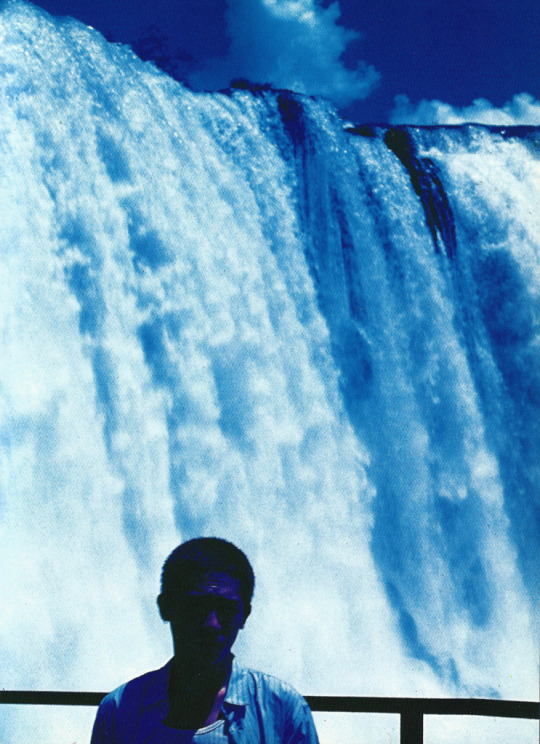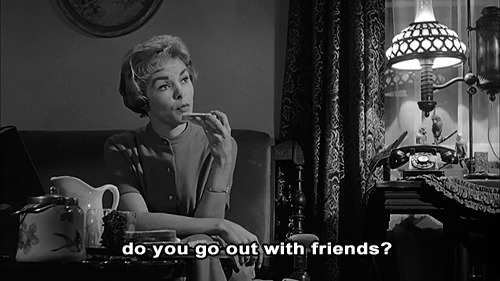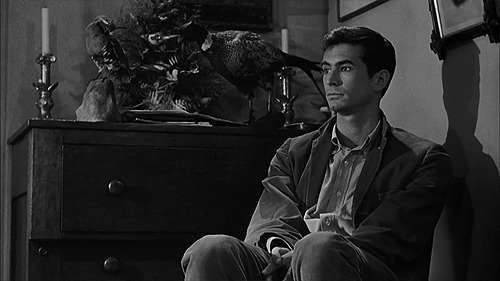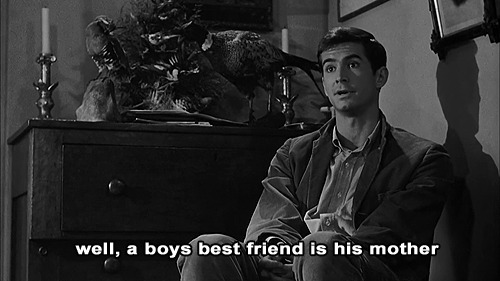Photo






胭脂扣 [Rouge] (1988, 關錦鵬 [Stanley Kwan])
18 notes
·
View notes
Text
Panenství (1937)
Panenství begins with a sequence in which a tramp-ish elderly man plays the womanizer in the street, checks the register of the shop where his wife does all the work, and molests a young woman we quickly realize is his own daughter.
It's a succinct opener for a film that finds the protagonist, Hannie (Lída Baarová), beset on all sides by men that want her attention. The manager of the shop where she works decides she's too pretty for washing dishes, and swaps her for a hostess whose stint in the front has apparently run its course; the manager must advise her against the 'councillor,' another older man who seduces women with gifts and money. Meanwhile, the only male main character who is not her father's age is also the man whose affection Hannie actually reciprocates. He stays up all night at the piano composing music when his illness should leave him bedridden -- and halfway through the film, Hannie allows herself to visit the 'councillor' to offer a sexual favor, but only to get the money to fund the younger man's treatment.
Hannie's visit to the 'councillor' is the most memorable scene in the film. The tone of the film drastically shifts, and we get the sense that she's walking into a monster's lair. Harsh shadows of balustrades flank her as she ascends the stairs, a seemingly ever-watching eye in the peephole spies her approach to the door even before she notices it. The 'councillor' invites her into the apartment and locks the door from the inside. In his bedroom, the tension mounts as she notices statues and fish in a tank decorating his room, all clearly symbols for immobility and captivity. While the old man is beginning to undress her, she loses her nerve and shoves him away, causing a stroke which paralyzes him. He stares up at her from his fallen position on the floor with a grotesque, monstrous stare. Hannie must extract the key from his pocket to unlock the front door. The councillor's room is a dark otherworld in this film, and we're led there by a sequence that crosses first into film noir before going even further into surreal horror. The close-up of the 'councillor's' twisted grimace against a silent soundtrack is the climactic moment; it's made even more terrifying by the fact that we can barely trace how we got here. Such is the subtle shift in genre that this film takes.
The mood of the film matches the American and French film noirs, where all the harsh shadows may as well be cast by tanks and destroyed monuments. One need only note that this is a Czech film made in 1937 to know what I mean. The film ends with a voiceover about the futility of all endeavors before fading to an abrupt 'KONEC' (the end).
The film is made even more interesting when one finds out that the lead, Lída Baarová, was the mistress of Hitler's propaganda minister. (See chapter 3 of 'Gottland' by Mariusz Szczygiel for the rest of the story.) Interestingly enough, one of Hannie's coworkers at the cafe is played by Adina Mandlová, who was accused after the war of similarly collaborating with the Germans and nearly lynched in the streets of Prague. Not only does the film show that older, sometimes unseen men are the ones dictating the flow of events, but the women have no agency either, and only exist in relation to the choices that men make. Baarová and Mandlová's colleague relationship in the film predicts their roles as contemporaries in history, remembered mostly for the scandals they may or may not have been involved in.
Coming from a place of ignorance with regard to Czech cinema, it is uncanny to see genres that I'm highly familiar with, but with the added subtext that some of these actors are more intimately and inextricably tied to history than Humphrey Bogart or Rita Hayworth are. On the level of sheer interest in history, the pecularities of the Czech language and geography (Prague still retains the same type of two-way peephole and lockable-from-the-inside doors you see in the 'councillor's' apartment) made this unbelievably interesting to watch.
8 notes
·
View notes
Video
The Machine Which Makes Everything Disappear (2012; Georgia)
i love these films that are essentially just portraits or a series of portraits
tumblr
16 notes
·
View notes
Photo

Panna a nevtor [Beauty and the Beast] (1978)
18 notes
·
View notes
Photo

Panna a nevtor [Beauty and the Beast] (1978)
4 notes
·
View notes
Photo

Panna a nevtor [Beauty and the Beast] (1978)
93 notes
·
View notes
Photo

I am ashamed. I am ashamed of being young. I am ashamed of being stupid.
144 notes
·
View notes
Photo
Emmanuelle Riva in Hiroshima Mon Amour, 1959

1K notes
·
View notes
Photo

Tony Leung at Iguazu Falls from cinematographer Christopher Doyle’s visual and narrative diary, Buenos Aires, of his participation in the making of Wong Kar Wai’s film Happy Together.
961 notes
·
View notes
Photo






Zizek on Tarkovsky’s Stalker
The Pervert’s Guide To Cinema (2006), dir. by Sophie Fiennes
250 notes
·
View notes
Photo
i have seen more films about ruan lingyu than i have seen films starring ruan lingyu








Shanghai silent film “Goddess”: Ruan LingYu
默片悲旦“舊上海神女” 阮玲玉
33 notes
·
View notes













